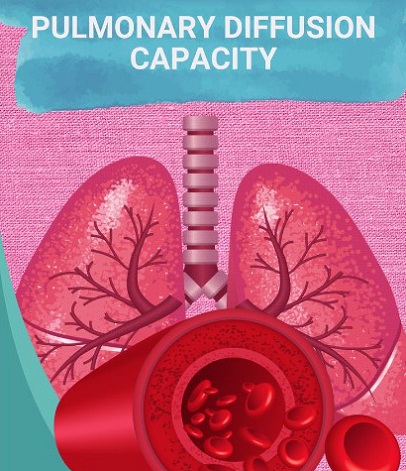Mild to Moderate COVID-19 Can Cause Pulmonary Diffusing Capacity Issues and Shortness of Breath
Nikhil Prasad Fact checked by:Thailand Medical News Team Nov 07, 2024 1 year, 3 months, 2 weeks, 4 days, 1 hour, 53 minutes ago
Medical News: Researchers from Israel’s Sheba Medical Center and Rabin Medical Center have conducted a study revealing that individuals recovering from mild to moderate COVID-19 can experience long-term respiratory issues. These findings challenge the belief that lasting lung problems are confined to those who suffered severe cases. For those affected by mild to moderate infections, the study sheds light on how COVID can continue impacting daily life, especially with symptoms like shortness of breath and reduced lung function.
 Mild to Moderate COVID-19 Can Cause Pulmonary Diffusing Capacity
Mild to Moderate COVID-19 Can Cause Pulmonary Diffusing Capacity
Issues and Shortness of Breath
Study Approach and Participant Selection
This
Medical News report discusses how researchers gathered data from adults who had recovered from mild to moderate COVID-19 and attended a recovery clinic. The study, spanning from 2020 to 2021, included comprehensive pulmonary function tests (PFTs) to assess the lung health of the participants. This involved testing the diffusing capacity for carbon monoxide (DLCO), a marker that indicates how well oxygen transfers from the lungs into the bloodstream. Impaired DLCO can signify lung issues, even in cases that didn’t initially appear severe.
The study included 458 individuals with an average age of 45, about half of whom were women. After screening out participants with missing data, 394 individuals formed the final study group. Interestingly, 17% of the participants showed impaired DLCO, indicating long-term lung function issues despite recovering from a mild or moderate initial COVID-19 infection.
Findings and Key Factors Linked to Impaired Lung Function
Among those with impaired DLCO, certain characteristics stood out. Women, in particular, had a significantly higher risk of reduced lung function, with nearly 78% of the impaired group being female. Smoking also played a role, with smokers twice as likely to experience these long-term effects as nonsmokers. Body Mass Index (BMI) showed an inverse relationship, with lower BMIs correlating to a higher risk of DLCO impairment.
The presence of dyspnea, or difficulty breathing, was a strong indicator of reduced DLCO. Participants with moderate-to-severe dyspnea were 2.77 times more likely to have impaired lung function, underscoring the importance of self-reported symptoms in assessing recovery outcomes.
What This Means for Patients and Doctors
The researchers emphasized that subjective reports of breathing difficulties could be essential for guiding medical evaluations. Self-reported symptoms of shortness of breath could prompt doctors to recommend PFTs to catch any lingering respiratory issues early, potentially guiding more effective rehabilitation. With so many COVID-19 cases globally, knowing which patients might need ongoing care could help manage resources and improve recovery strategies.
Potential Explanations for Impaired Lung Function
While the study did not pinp
oint exactly why mild COVID-19 cases could lead to long-term lung impairment, several theories exist. Some experts propose that ongoing viral presence, small blood clots, or subtle lung tissue damage could contribute to the observed symptoms. More research would be necessary to explore these mechanisms fully.
The study also revealed that patients who had a history of smoking had nearly double the likelihood of impaired lung function after COVID-19. Smoking has long been linked to various respiratory issues, and COVID-19’s impact seems to exacerbate this risk.
Limitations and Future Research Directions
The cross-sectional design of this study poses limitations, as it captures data at only one point in time. This makes it challenging to assess whether lung function worsens or improves over time. Furthermore, the lack of pre-COVID lung function measurements means that researchers couldn’t compare participants’ lung health before and after the infection. Future longitudinal studies could help provide insights into how lung function changes over time in people recovering from mild COVID-19.
Conclusion
The research findings underscore that even mild COVID-19 cases can have lasting effects, with a significant percentage of patients experiencing impaired lung function. Women, smokers, and those with lower BMIs may be particularly vulnerable. Given the prevalence of self-reported breathing issues among these patients, the study suggests that healthcare providers should consider subjective symptoms as valid indicators when deciding on additional tests. While more research is needed, this study highlights the need for attention to long-term recovery, even for those with initially mild cases.
The study findings were published in the peer-reviewed journal: Scientific Reports.
https://link.springer.com/article/10.1038/s41598-024-74404-6
For the latest COVID-19 News, keep on logging to Thailand
Medical News.
Read Also:
https://www.thailandmedical.news/news/new-study-shows-persistent-pulmonary-abnormalities-even-after-three-years-since-covid-19-infection
https://www.thailandmedical.news/news/spanish-study-shows-persistent-pulmonary-abnormalities-even-at-18-months-after-sars-cov-2-pneumonia
https://www.thailandmedical.news/news/doctors-warn-that-most-exposed-to-covid-19-have-dysfunctional-lung-gas-exchange
https://www.thailandmedical.news/news/post-covid-individuals-can-continue-to-suffer-from-exercise-ventilatory-inefficiency-34-months-after-hospital-discharge
https://www.thailandmedical.news/news/irrespective-of-severity-40-percent-of-post-covid-pneumonia-patients-still-have-impaired-lung-diffusion-and-22-percent-developed-lung-fibrosis-a-year-
https://www.thailandmedical.news/news/university-of-iowa-researchers-discover-small-airways-disease-with-the-presence-of-air-trapping-is-a-long-lasting-sequelae-of-sars-cov-2-infection
